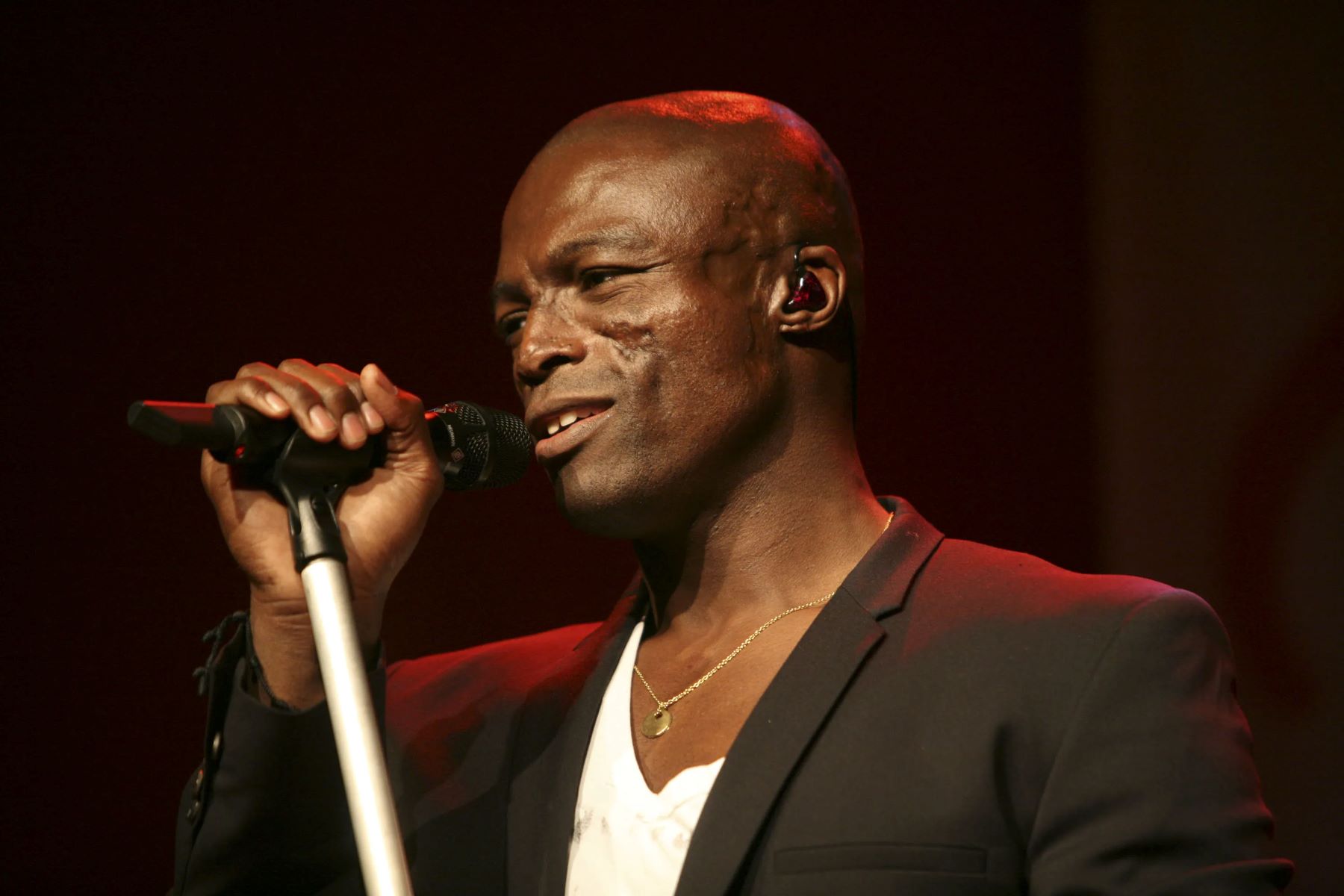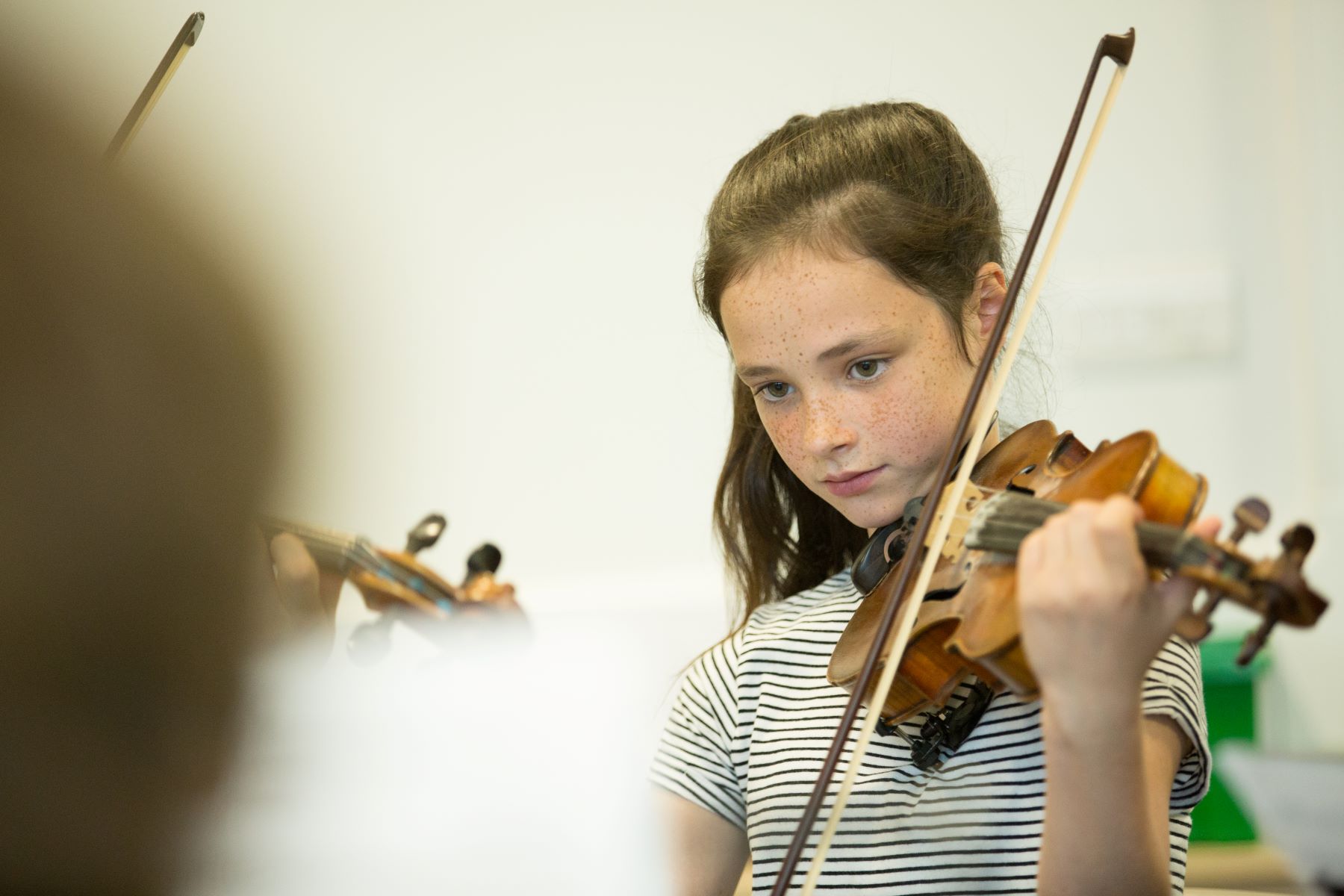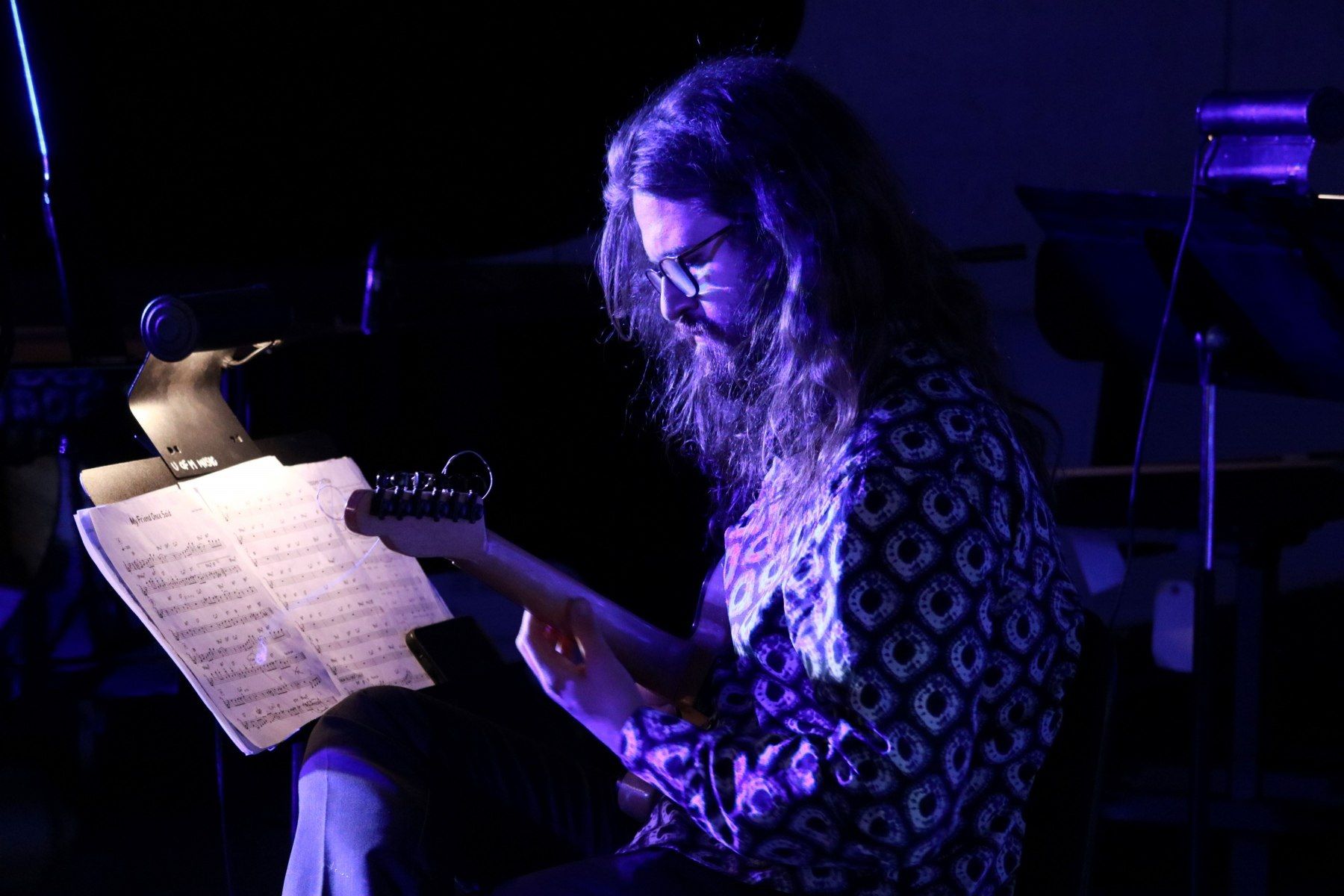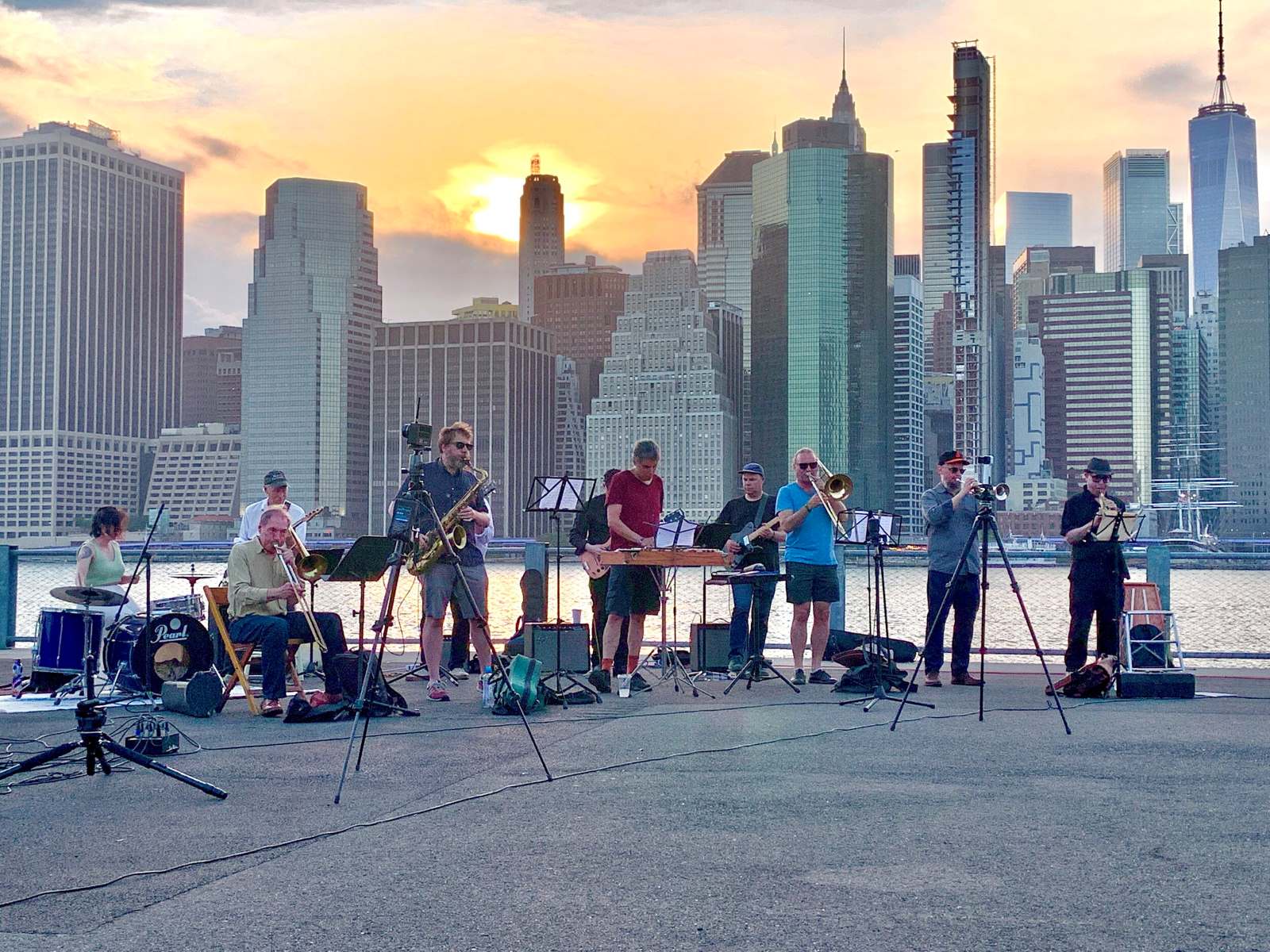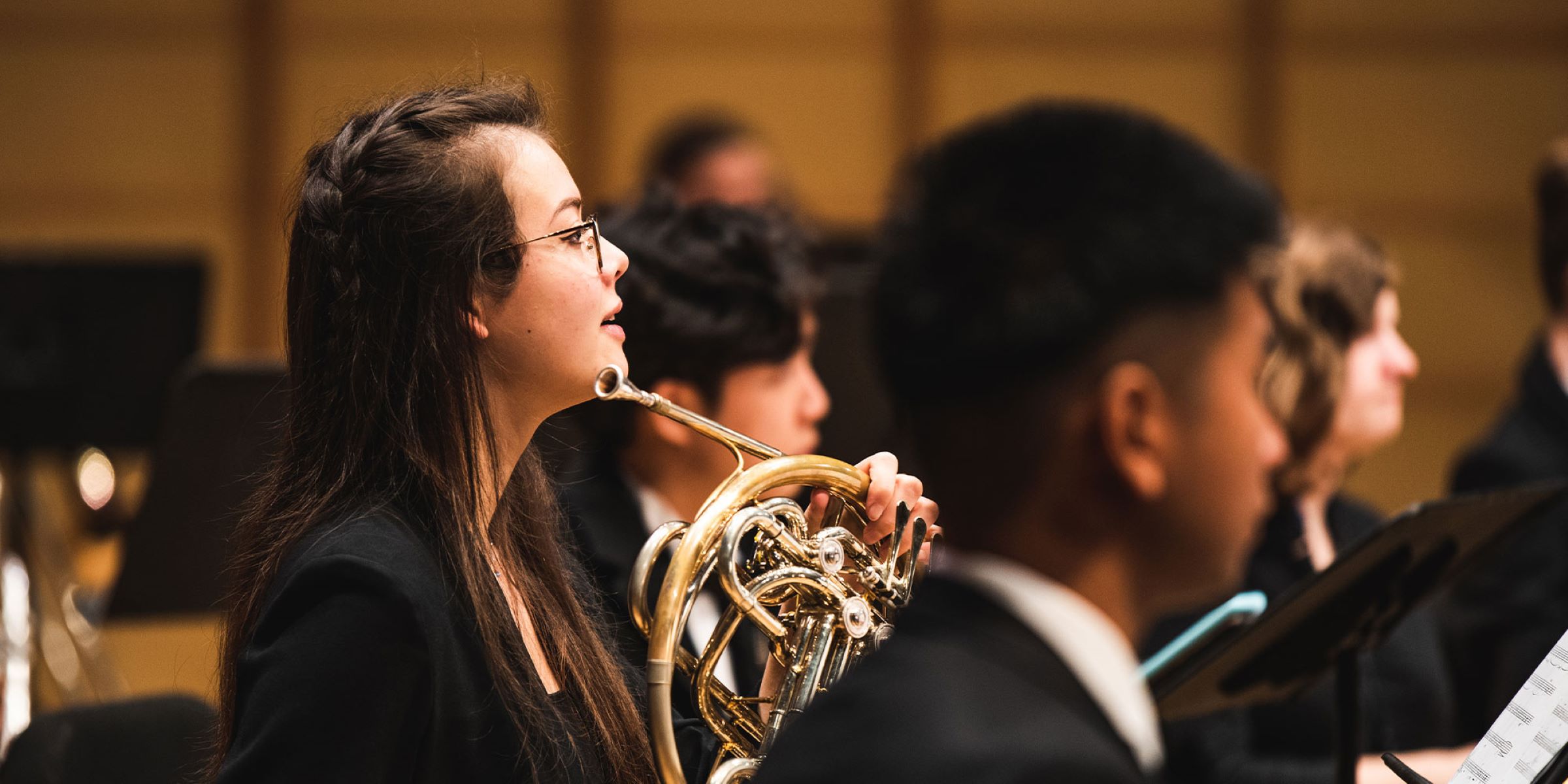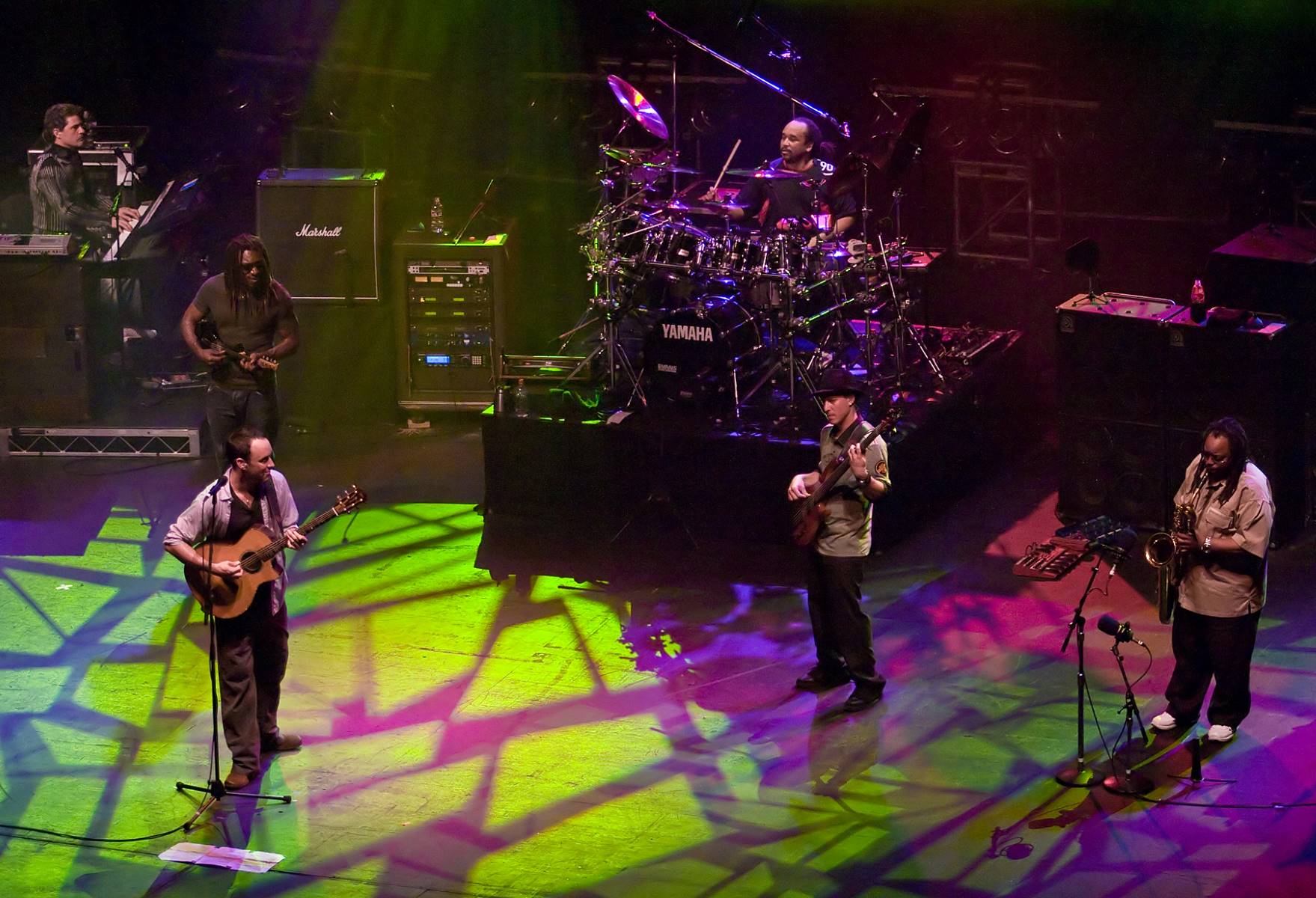Home>Production & Technology>Musician>What Career Cluster Is A Musician In


Musician
What Career Cluster Is A Musician In
Published: January 28, 2024
Discover which career cluster a musician falls under and explore the diverse opportunities available in the music industry. Unleash your passion for music and pursue a rewarding career as a musician.
(Many of the links in this article redirect to a specific reviewed product. Your purchase of these products through affiliate links helps to generate commission for AudioLover.com, at no extra cost. Learn more)
Table of Contents
- Introduction
- Overview of Career Clusters
- What is a Musician?
- Identifying the Career Cluster for Musicians
- Career Cluster: Arts, A/V Technology, and Communications
- Jobs and Occupations in the Arts, A/V Technology, and Communications Career Cluster
- Skills and Abilities Required for Musicians
- Education and Training for a Career in Music
- Career Pathways for Musicians
- Conclusion
Introduction
Music is a universal language that has the power to touch our souls, evoke emotions, and inspire us. Musicians possess a unique talent and passion for creating beautiful melodies and harmonies that resonate with people around the world. If you have a love for music and dream of pursuing a career in this field, you may be wondering what career cluster musicians fall into in the world of work.
When it comes to organizing careers, the U.S. Department of Education has established Career Clusters. These clusters group similar occupations and career pathways together, providing a framework for students and professionals to explore and choose career options within a specific industry.
In this article, we will delve into the world of musicians and discover the career cluster they belong to. We will explore the skills, education, and training required to excel in this field, as well as the various career pathways available for aspiring musicians.
Whether you aspire to become a singer-songwriter, a member of an orchestra, or a solo instrumentalist, understanding the career cluster musicians fall into will serve as a roadmap to guide you towards your goals. So let’s dive in and uncover the exciting world of music careers within the career cluster framework.
Overview of Career Clusters
Career Clusters are a way to categorize careers and occupations into 16 broad industry groups. These clusters provide a framework for organizing careers and pathways based on common skills, knowledge, and interests. The goal of Career Clusters is to help individuals explore and navigate their career options more effectively.
Each Career Cluster represents a group of related occupations and industries. Within each cluster, there are different career pathways that provide a more specific focus on certain industries or job roles. These pathways help individuals identify the skills and knowledge required for different careers within the cluster.
The Career Clusters cover a wide range of industries, including healthcare, business management, information technology, manufacturing, and much more. By categorizing careers into clusters, individuals can gain a better understanding of the types of industries and occupations they may be interested in pursuing.
Understanding the Career Clusters is particularly helpful for students who are exploring different career options as they plan their educational journey. Through the exploration of clusters and pathways, students can align their coursework and educational experiences with their future career goals.
Now that we have a general understanding of Career Clusters, let’s dive into the specific career cluster that musicians fall into and explore the exciting opportunities within this field.
What is a Musician?
A musician is an individual who plays a musical instrument or sings, using their talent and skills to create and perform music. Musicians are artists who express their creativity and emotions through the power of sound, captivating audiences with their performances.
There are various types of musicians, each specializing in different instruments or vocal styles. They can be solo performers, members of bands or orchestras, session musicians, or even composers and songwriters. Musicians can be found in a wide range of musical genres, including classical, jazz, rock, pop, country, and more.
One of the key aspects of being a musician is the ability to interpret and perform music with technical proficiency and artistic expression. They may perform in live concerts, record music for albums, create soundtracks for movies and television shows, or collaborate with other musicians to create unique musical compositions.
In addition to performing, musicians also spend a significant amount of time practicing and honing their skills. They continuously work on improving their technique, experimenting with different musical styles, and expanding their repertoire.
Being a musician requires a deep understanding of music theory, the ability to read sheet music, and the skill to interpret and execute musical compositions. Musicians often possess a strong sense of rhythm, pitch, and tonal quality, allowing them to create captivating melodies and harmonies.
Moreover, musicians should have a passion for music and a genuine love for their craft. They dedicate countless hours to their practice, show a commitment to their artistic growth, and continuously seek inspiration to evolve as musicians.
Overall, musicians are the heart and soul of the music industry, bringing joy and inspiration to audiences worldwide through their artistic expression and musical talent.
Identifying the Career Cluster for Musicians
Now that we understand the essence of being a musician, let’s explore the career cluster in which musicians belong. The career cluster that encompasses the field of music is the Arts, A/V Technology, and Communications cluster.
The Arts, A/V Technology, and Communications cluster is a diverse and dynamic cluster that includes careers related to visual arts, performing arts, broadcasting, journalism, film production, and of course, music. This cluster is all about creativity, expression, and communication through various artistic mediums.
Within the Arts, A/V Technology, and Communications cluster, musicians fall specifically into the Performing Arts pathway. This pathway focuses on careers that involve live performances, musical productions, and artistic expression through music and dance.
The Performing Arts pathway offers a range of career opportunities for musicians, including but not limited to:
- Musician
- Singer
- Composer
- Conductor
- Music Director
- Music Teacher
- Sound Engineer
These careers allow musicians to showcase their skills and talents in various settings, such as concert halls, theaters, recording studios, and educational institutions.
Being part of the Arts, A/V Technology, and Communications cluster provides musicians with a platform to collaborate with other creative professionals, including actors, dancers, producers, and directors. It allows musicians to explore different artistic avenues and experiment with their craft.
Furthermore, the Arts, A/V Technology, and Communications cluster focuses on developing skills in the areas of creativity, technical proficiency, critical thinking, and communication. These are essential skills for musicians to excel in their careers, as they need to innovate, adapt to different musical styles, analyze musical compositions, and effectively communicate their artistic vision.
Now that we have identified the career cluster musicians belong to, let’s dive deeper into the specific jobs and occupations within the Arts, A/V Technology, and Communications cluster that musicians can pursue.
Career Cluster: Arts, A/V Technology, and Communications
The Arts, A/V Technology, and Communications career cluster is a vibrant and diverse field that encompasses a wide range of creative and artistic occupations. Professionals in this cluster use their talents and skills to communicate messages, entertain audiences, and create visual and auditory experiences.
This career cluster is all about the power of artistic expression and the ability to captivate and engage audiences through various mediums. From visual artists and musicians to film producers and graphic designers, this cluster offers a plethora of exciting career paths.
Within the Arts, A/V Technology, and Communications cluster, there are several pathways that individuals can pursue based on their interests and talents. These pathways include:
- Audio and Video Technology and Film
- Performing Arts
- Printing Technology
- Journalism and Broadcasting
- Visual Arts and Design
- Telecommunications
Each pathway provides a unique set of skills and knowledge required for specific careers within the cluster. Musicians primarily fall into the Performing Arts pathway, which focuses on careers related to live performances, musical productions, and artistic expression through music and dance.
However, it’s important to note that many musicians also find themselves collaborating with professionals from other pathways within this cluster. For example, they may work with sound engineers, film producers, or graphic designers to create music videos or conceptualize album covers.
By being a part of the Arts, A/V Technology, and Communications cluster, musicians have the opportunity to connect with other creative individuals, learn from their experiences, and collaborate on innovative projects that combine different art forms.
Furthermore, careers within this cluster often require a balance of technical proficiency, artistic prowess, and effective communication skills. Musicians, in particular, need to have a deep understanding of musical theory, excellent performance skills, and the ability to effectively convey their emotions and messages to their audience.
Whether it’s performing on stage, composing original music, or teaching others to appreciate the art of music, the Arts, A/V Technology, and Communications cluster provides musicians with a supportive and stimulating environment to grow and thrive in their careers.
Next, let’s explore some of the specific jobs and occupations within the Arts, A/V Technology, and Communications cluster that musicians can pursue.
Jobs and Occupations in the Arts, A/V Technology, and Communications Career Cluster
The Arts, A/V Technology, and Communications career cluster offers a wide range of exciting and diverse job opportunities for individuals with a passion for creativity and artistic expression. Within this cluster, musicians can explore various occupations that allow them to showcase their musical talent and connect with audiences on a deeper level.
Here are some of the jobs and occupations in the Arts, A/V Technology, and Communications career cluster that musicians can pursue:
- Musician: Musicians perform live music or record music for albums, films, and television shows. They can specialize in various musical genres and instruments, showcasing their talents through solo performances or as part of a band or orchestra.
- Singer: Singers use their vocal abilities to interpret and perform songs. They can pursue careers as solo artists or be part of a choir, band, or vocal group, captivating audiences with their vocal range and emotional expression.
- Composer: Composers create original musical compositions for various purposes, including film scores, TV commercials, video games, and more. They use their knowledge of musical theory and creativity to craft melodies and harmonies that evoke specific emotions and enhance visual experiences.
- Music Director/Conductor: Music directors and conductors lead orchestras, choirs, or bands, guiding musicians through rehearsals and performances. They play a critical role in interpreting and bringing musical compositions to life, ensuring that the performers are in sync and conveying the intended artistic vision.
- Music Teacher: Music teachers educate students of all ages in the art and techniques of playing musical instruments or singing. They provide instruction in music theory, help students develop their musical skills, and may prepare students for performances and competitions.
- Sound Engineer: Sound engineers work behind the scenes to capture and enhance the audio quality of musical recordings or live performances. They use their technical expertise to manipulate sound levels, mix tracks, and ensure the overall sound production meets the desired standards.
These are just a few examples of the wide range of jobs and occupations available in the Arts, A/V Technology, and Communications career cluster for musicians. The cluster offers a platform for musicians to express their creativity, connect with audiences, and contribute to the vibrant landscape of the music industry.
Whether musicians choose to perform on stage, compose music for films, teach others the joy of music, or work behind the scenes in audio production, there are numerous opportunities for growth and fulfillment within this career cluster.
Now that we have explored the jobs and occupations available to musicians in the Arts, A/V Technology, and Communications cluster, let’s delve into the skills and abilities required to excel in a career as a musician.
Skills and Abilities Required for Musicians
Being a successful musician requires a combination of technical skills, natural talent, and personal qualities that contribute to the artistry and performance. Here are some of the key skills and abilities required for musicians:
- Musical Proficiency: Musicians must have a high level of proficiency in playing their chosen instrument or in singing. They should have a deep understanding of music theory, including concepts such as melody, harmony, rhythm, and tempo.
- Performance Skills: Musicians need to have the ability to perform confidently in front of an audience. This includes stage presence, expressiveness, and the capacity to connect with listeners emotionally through their performance.
- Listening and Interpretation: Musicians must have a keen ear and the ability to listen attentively to music. They need to interpret and understand musical compositions, capturing the nuanced emotions and intentions of the music creator and conveying them to the audience.
- Collaboration: Many musicians work in groups or bands, requiring them to collaborate effectively with other musicians. They should be able to listen, adjust, and interact with fellow musicians to create harmonious and cohesive performances.
- Creativity and Expression: Musicians should possess a creative mindset and the ability to express themselves artistically through their music. They should be able to infuse their own style and emotions into their performances to create a unique and captivating experience for the audience.
- Practice and Discipline: Musicians need to have a strong work ethic and be dedicated to continuous practice and improvement. Regular practice helps musicians refine their skills, expand their repertoire, and explore new musical techniques and styles.
- Adaptability: Musicians should be adaptable and open to exploring different musical genres and styles. Being versatile allows them to expand their opportunities and connect with a broader audience.
- Time Management: Musicians often have multiple commitments, such as performances, rehearsals, and studio sessions. Effective time management skills are crucial to balance these commitments, meet deadlines, and maintain a professional approach to their music career.
These skills and abilities are essential for musicians to thrive in their careers. Whether they are performing on a grand stage, composing original music, or teaching others, possessing these qualities will contribute to their success and impact as musicians.
Next, let’s explore the education and training required to embark on a career in music.
Education and Training for a Career in Music
While musical talent and passion are fundamental to becoming a musician, formal education and training play a crucial role in developing the necessary skills and knowledge for a successful career. Here are the key aspects of education and training for aspiring musicians:
Formal Music Education: Many musicians pursue formal education in music. This can include obtaining a bachelor’s degree in music performance, music education, composition, or a related field. A formal music education provides a comprehensive understanding of music theory, history, technique, and performance skills.
Private Music Lessons: Alongside formal education, many musicians take private music lessons to refine their skills on a specific instrument or in singing. Private lessons offer individualized instruction and focus on technique, repertoire, and performance preparation.
Ensemble and Performance Opportunities: Being part of music ensembles, such as orchestras, bands, or choirs, provides valuable performance experience and the opportunity to collaborate with other musicians. Participating in live performances and competitions helps musicians develop essential skills and build a professional network.
Masterclasses and Workshops: Attending masterclasses and workshops led by renowned musicians can be highly beneficial. These events provide insights into advanced techniques, interpretation, and performance strategies, allowing aspiring musicians to learn from experienced professionals in their field.
Internships and Apprenticeships: Many musicians gain practical experience through internships or apprenticeships with orchestras, recording studios, or music production companies. These opportunities offer hands-on experience, exposure to professional settings, and networking opportunities within the music industry.
Continuing Education and Professional Development: As music is a constantly evolving field, musicians must commit to lifelong learning and professional development. This can include attending conferences, taking workshops on new musical technologies, or pursuing advanced degrees in music to enhance their skills and stay current in the industry.
While formal education and training are valuable, it’s important to note that some musicians achieve success through self-study and practical experience alone. What matters most is a combination of talent, dedication, and the ability to connect with audiences through their musical expression.
Ultimately, the education and training path for a musician will vary based on individual goals, interests, and opportunities. Many musicians combine formal education with real-world experiences to cultivate a well-rounded skill set and launch a successful career in the music industry.
Now that we have explored education and training, let’s move on to discussing the different career pathways that musicians can pursue.
Career Pathways for Musicians
The world of music offers a multitude of career pathways for talented individuals who are passionate about pursuing a career as a musician. These pathways provide a roadmap for musicians to navigate their professional journey and explore various opportunities within the music industry. Here are some common career pathways for musicians:
Performing Artist: Many musicians choose the path of a performing artist, where they showcase their musical talents through live performances, concerts, and tours. Performing artists can specialize in specific genres or styles of music and may work as solo artists, members of bands or orchestras, or part of musical theater productions.
Studio Musician: Studio musicians work in recording studios, lending their skills to produce tracks for albums, movie soundtracks, jingles, or other media productions. They may be session musicians, hired to add their musical expertise to various projects and collaborate with other artists and producers.
Composer/Songwriter: Composers and songwriters create original musical compositions and songs. They may work in various genres or specialize in specific areas such as film scores, television jingles, or commercial music. Composers and songwriters often collaborate with other musicians or artists to bring their compositions to life.
Music Educator: As a music educator, musicians have the opportunity to inspire and teach the next generation of musicians. They can work in schools, colleges, or private teaching studios, providing music lessons, directing ensembles, or teaching music theory and history. Music educators play a critical role in nurturing young talent and fostering a love for music.
Conductor/Music Director: Conductors and music directors lead orchestras, choirs, or other musical ensembles. They are responsible for interpreting musical scores, guiding rehearsals, and directing performances. This role requires strong leadership skills, a deep understanding of musical theory, and the ability to bring out the best performances from the musicians under their baton.
Music Entrepreneur: Some musicians choose to forge their own path as music entrepreneurs, establishing their own music production company, record label, or music publishing business. This pathway requires not only musical talent but also business acumen, marketing skills, and the ability to navigate the ever-changing music industry landscape.
It’s important to note that these career pathways are not mutually exclusive, and musicians may transition between different roles and opportunities throughout their careers. Many musicians also pursue multiple pathways simultaneously, combining performing with songwriting, teaching, or studio work.
Exploring the various career pathways allows musicians to find their niche, pursue their passion, and discover new avenues for growth and creative fulfillment. The music industry is diverse and vibrant, offering a wealth of opportunities for musicians to carve out their unique place and make a lasting impact.
Finally, let’s conclude our exploration of the career cluster for musicians and the exciting possibilities within the world of music.
Conclusion
In conclusion, musicians belong to the Arts, A/V Technology, and Communications career cluster, specifically within the Performing Arts pathway. This career cluster provides a platform for musicians to express their creativity, connect with audiences, and showcase their musical talents.
As musicians, they possess a unique ability to create and perform beautiful melodies and harmonies, captivating listeners and evoking emotions. They can pursue various career pathways, including performing as solo artists or within bands, composing original music, teaching others, or working in the recording industry.
To excel in their careers, musicians require a combination of skills, including musical proficiency, performance skills, creativity, collaboration, and discipline. Formal education and training in music, along with practical experience and continuous learning, contribute to their growth and success in the music industry.
The world of music offers numerous opportunities for musicians to find their path, express themselves artistically, and connect with audiences on a profound level. Whether performing in live concerts, creating musical compositions, teaching, or working behind the scenes, musicians play a vital role in enriching our lives through the power of music.
Aspiring musicians should explore different career pathways, continuously refine their skills, and seize opportunities to collaborate with other artists. With dedication, passion, and a commitment to lifelong learning, musicians can navigate their professional journey and make a lasting impact in the vibrant and ever-evolving world of music.
So, if you have a love for music and a desire to pursue a career as a musician, embrace the journey, unleash your creativity, and let the universal language of music guide you towards a fulfilling and successful career.

